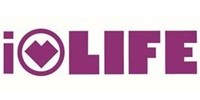loveLife has released iloveLife, an interactive digital platform that encourages holistic youth development in order to equip young people (aged 10-24) with important tools to help them navigate life. Described as a world first, it is an innovative digital programme to promote youth development and address the HIV/Aids pandemic by using incentives to change behaviour.
"Over the last 16 years we have done innovative work with young people in order to bring down HIV infections, but we need to work hard to remain relevant, we need to find new ways of doings things and the opportunity to create that change is here," says loveLife CEO Grace Matlhape.
Using power of mobile
The opportunity Matlhape is talking about is the explosive growth of mobile phones in South Africa and the resulting surge in the number of people with internet access. Added to this growth is the massive uptick in engagement on social media platforms via mobile devices, particularly among younger users.
In South Africa, 80% of the people accessing the internet are doing so exclusively through mobile devices says World Wide Worx, an independent market research firm. According to the World Bank's data, South Africa's mobile penetration is higher than that of the US. Moreover, not just affluent South Africans are plugged into technology, according to research by Durham University in the UK. Already, over 50% of young people in low-income communities own mobile devices and the numbers are growing.
As a web-based software programme, iloveLife.mobi was specifically developed to be accessible to everyone, not just people with smartphones. Users with access to the internet simply log onto iloveLife.mobi to create a profile, while cellphone users in remote areas can dial *120*2121# and follow the prompts.
Healthier options through rewards
By offering a home to young South Africans that rewards them directly, iloveLife becomes a healthier option to the negative forces that can drag young people into risk and HIV infection.
Incentives and conditional rewards programmes have been successfully applied worldwide across education, social welfare and health care. Recently, during a two-year experiment in southern Malawi, girls between 13 and 22 were rewarded for staying in school. The staggering results revealed a 38% reduction in sexual activity, a 30% reduction in teenage pregnancy and a 40% reduction in early marriage. Furthermore, HIV prevalence in the incentivised group was more than half that of the control group.
Attracting a million users
iloveLife is looking at attracting 1 million young people in the first two years with 160,000 actively engaged users earning points. loveLife will also be tracking the number of HIV tests that can be attributed to the site with an aim to have 500,000 young people take HIV tests by June 2017.
While iloveLife's ultimate aim is to reduce risky sexual behaviour and the associated high HIV prevalence among young people, it is much more than that. It is a holistic youth development programme that equips young people with the skills, knowledge, insights and advice they need to navigate all aspects of life in South Africa.
In addition, the feature-rich mobi site enables users to find their nearest youth friendly clinics, to rate the services of those clinics, and to seek advice anytime they need it. Help buttons scattered throughout the site send an immediate 'Please Call Me' to trained counsellors at loveLife's dedicated call centre.














































